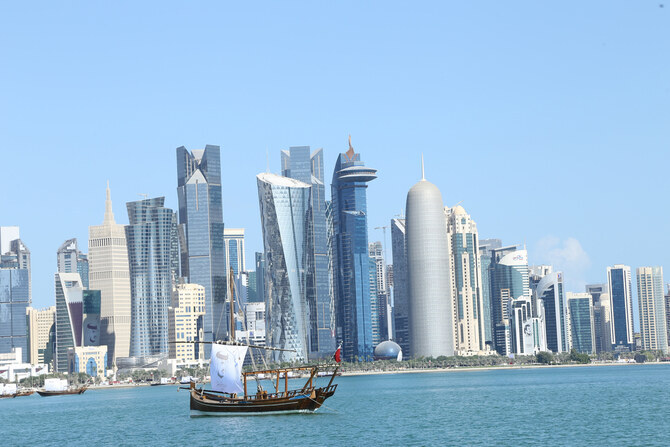WASHINGTON: The United States on Tuesday announced it was admitting Qatar into its visa waiver program, allowing visa-free travel by Qatari citizens for up to 90 days starting no later than Dec. 1.
The US Department of Homeland Security and the Department of State said in a statement that Qatar is the first Gulf country to be admitted to the US Visa Waiver Program, commending Doha for meeting the strict security requirements to join.
The tiny Gulf state has played a key role in mediation talks with Hamas and Israeli officials in relation to the war in Gaza and the release of hostages captured by the Palestinian Islamist group in its Oct. 7 cross-border attack on Israel.
An administration official told reporters the US has a strong defense relationship with Qatar and praised Doha for taking the lead on pressing the Taliban on human rights and providing assistance in Sudan, among other issues.
“Qatar’s fulfillment of the stringent security requirements to join the Visa Waiver Program will deepen our strategic partnership and enhance the flow of people and commerce between our two countries,” Secretary of State Antony Blinken said in a statement.
For admission to the program allowing visitors traveling for tourism or business purposes to stay up to 90 days without a visa, Washington requires countries to meet requirements on issues such as counterterrorism, law enforcement, immigration enforcement, document security, and border management.
Qatar put forth a “significant whole-of-government effort to meet all program requirements,” including on partnering to share information on terrorism and serious crimes, according to the statement.
Qatar is the 42nd member of the program, with nations added infrequently. Croatia was added in 2021 and Israel last year. The program requires countries to allow US citizens similar visa-free travel.
US citizens can currently travel to Qatar without a visa, but starting on Oct. 1 they will be allowed to stay for up to 90 days instead of 30.
US admits Qatar into visa waiver program
https://arab.news/zq9mw
US admits Qatar into visa waiver program

- Qatar is the first Gulf country to be admitted to the US Visa Waiver Program
- “Qatar’s fulfillment of the stringent security requirements to join the Visa Waiver Program will deepen our strategic partnership,” Secretary of State Antony Blinken said
























